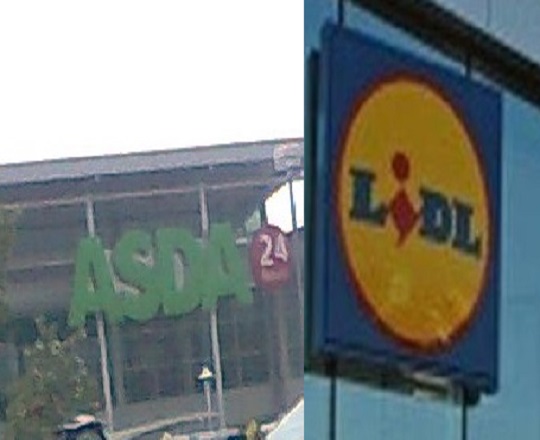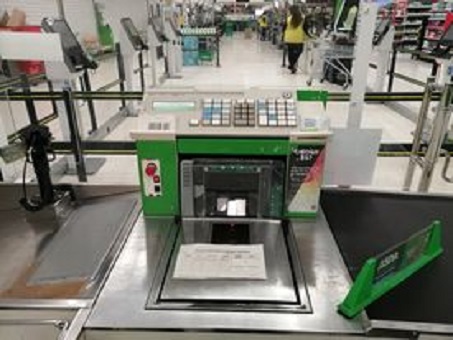Supermarket price comparison

Which? Have produced a league table of supermarket prices.
A basket of 78 basic grocery items was bought from seven supermarkets and online retailer Ocado,at the following prices:-
Lidl £72.02, Aldi £72.23, Asda £80.15, Tesco £88.28, Morrisons £90.27, Sainsbury’s £93.93, Ocado £109.61, Waitrose £111.77
For a larger basket of 178 items Lidl and Aldi dropped out because they don’t stock all of the items. The result was:-
Asda £299.78, Morrisons £312.78, Sainsbury’s £317.99, Tesco £324.03, Waitrose £367.19, Ocado £402.82.
Our view
Lidl and Aldi are widely believed to undercut the larger supermarket chains. Some of the ways they achieve this are easy to see. For example they don’t usually provide other services such as customer toilets and sales of (for example) postage stamps.
The difference in turnover is considerable. A decent sized supermarket will be taking £1m a week or more, while an Aldi or Lidl might take 10% of that. A larger supermarket will provide a specialist customer services desk, employ specialist cleaners as well as staff in the car park, so costs are higher.
A larger supermarket will stock over 40,000 different items compared to about 1500 at the discounters. And the large supermarkets don’t like gaps on the shelves. Most of the rear of store workers you see while you’re shopping are checking stock levels constantly and filling any gaps if they can. The really hard work of filling shelves is done by a night shift.
At the discounters (if you’ll pardon the phrase) when it’s gone it’s gone, and gaps on the shelves are more common.
The productivity of checkout staff makes a big difference to profitability.
Customers often remark on the speed at which products are scanned at the tills of the discounters. Behind this is real pressure on checkout staff to scan at over 1,000 items an hour, sometimes taking disciplinary action against them if they don’t achieve this target.
Among the major supermarkets, Asda and Waitrse seem to be the most laid back about scan speeds, and put more emphasis on customer service, while Sainsbury’s seem to be the most demanding. This may vary from store to store and across time.
Asda measures “rings per minute” rather than an hourly rate which records scan speeds during a transaction, but the clock stops when the “total” button is pressed after the final item is scanned.
The major supermarkets run regular promotions, price reductions or multi buys, which means that some products may be cheaper than the discounters for some of the time and more expensive at other times. They generally have a promotion on at least one item in a category, so you can usually find a good deal on (for example) coffee, if you’re prepared to change from your favourite brand.

